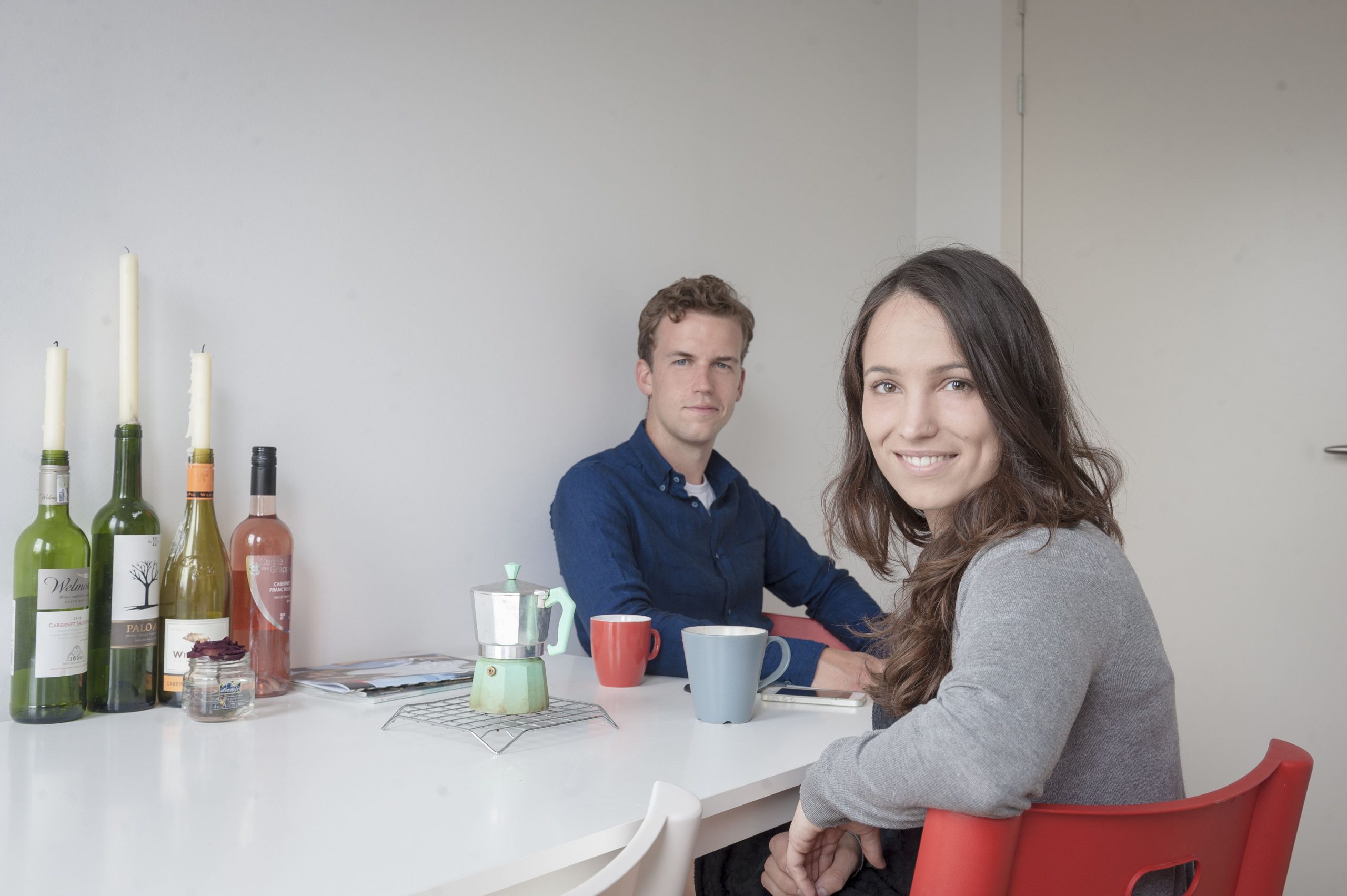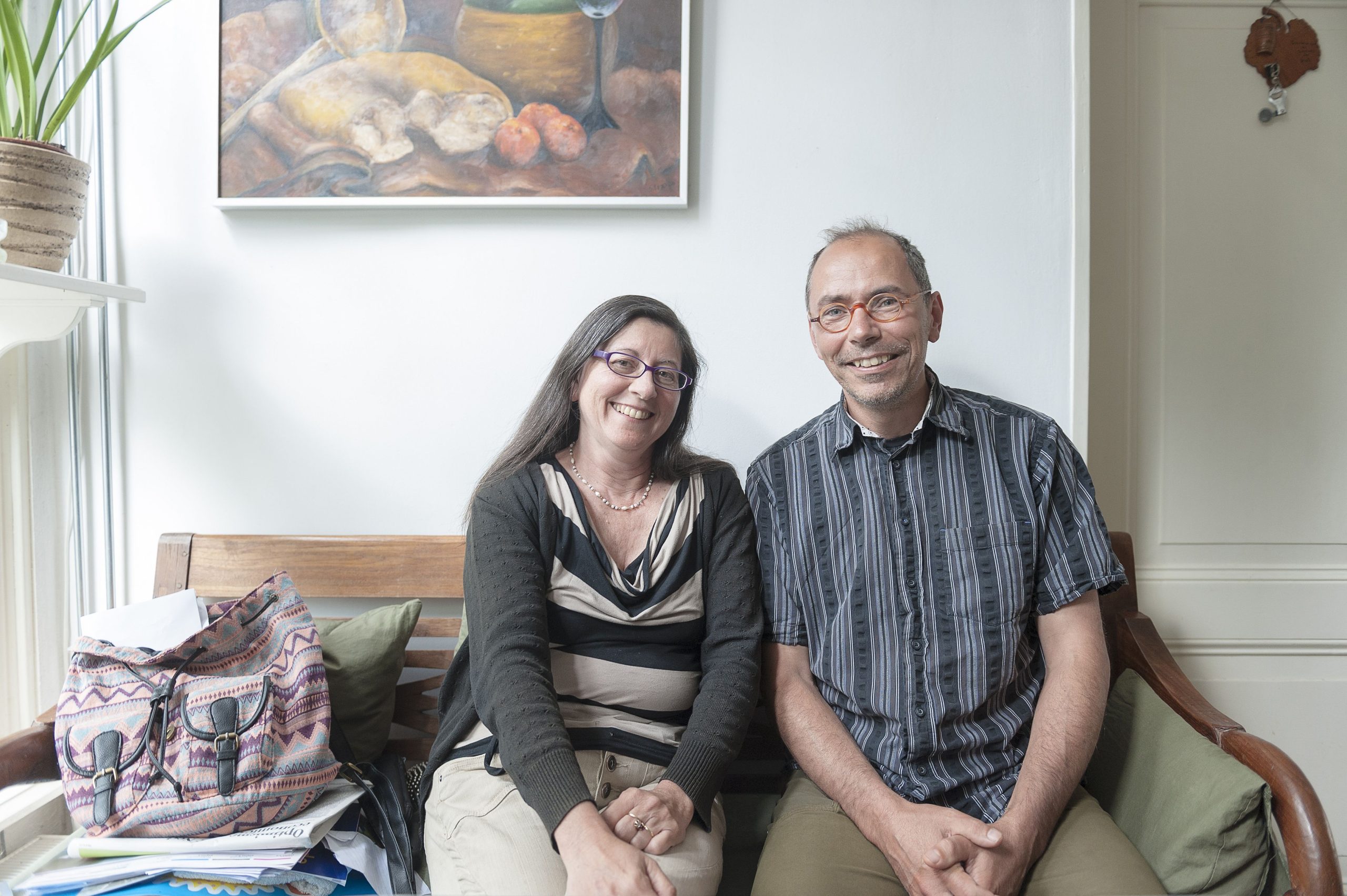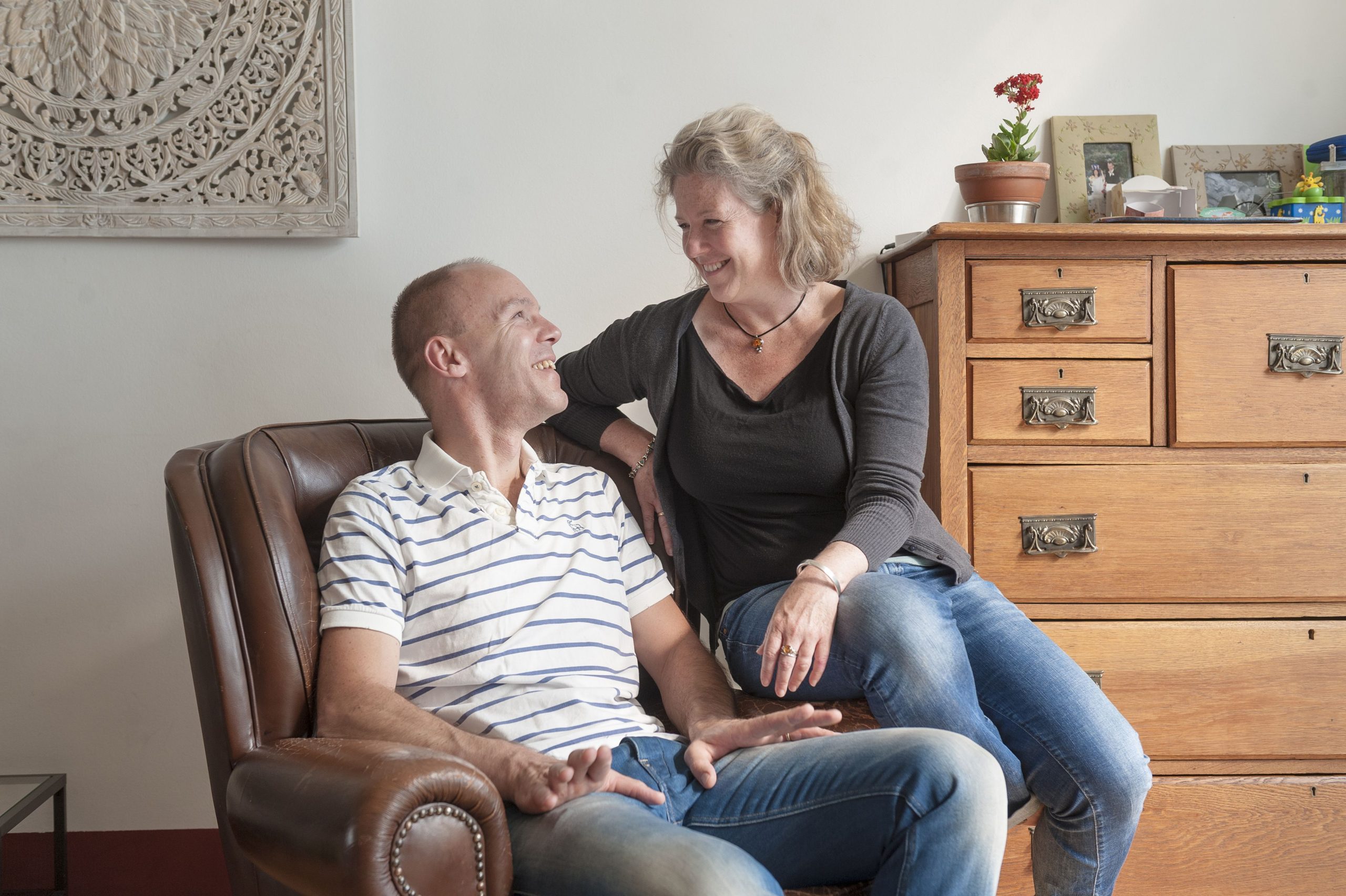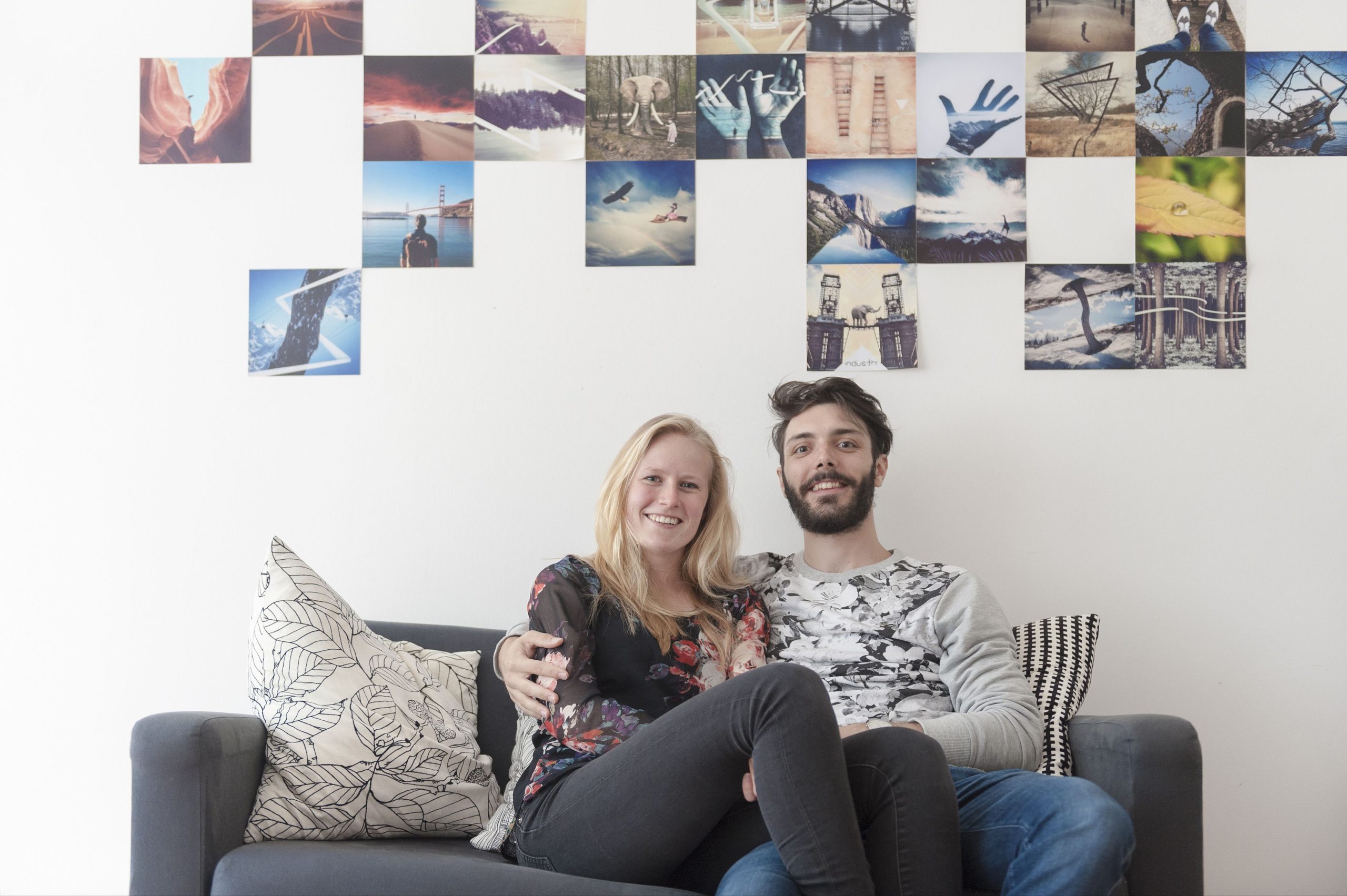The world today is more accessible than ever with endless opportunities for study, work and travel abroad. So it’s no surprise that the number of couples entering intercultural relationships has risen.
Such relationships face highs and lows of their own, in addition to the usual challenges any couple faces. We spoke to four internationals with Dutch partners to find out their stories and experiences.


Mar Muñoz Aparici and Wouter Neisingh
Spanish architecture master’s student, Muñoz Aparici, met her boyfriend during her search for accommodation. “I started to apply to houses advertising only for guys, it didn’t worry me. I got into a Virgiel fraternity house, and I actually got Wouter’s room for six months, whilst he went to Switzerland,” she said.
“It’s very different dating a Dutch guy, they’re caring. I like that people here in the Netherlands are honest, sometimes too honest, but it’s nice that you know how to handle people. The Dutch guys I know are confident and motivated, prone to making decisions and doing things with their life. I also found it interesting, they sit and ask – so are we in a relationship now? It’s really straightforward,” explained Muñoz Aparici.
There are challenges too. “It’s difficult with the language with family. His family speaks English, but it’s uncomfortable because they’re doing it just for me. It’s the same the other way around when he’s in my home town, as he doesn’t speak Spanish,” she said. Disagreements are also inevitable. “I know it’s a cliché, but food is an issue. It took me a while to make him understand I don’t like bread, and I don’t like eating bread every day. I never ate it on a daily basis before, and I’m not going to do it now. I have gotten used to eating at Dutch times though, so I found a balance I guess.”
The biggest concern is what the future holds. “I’m finishing my master’s study, but my boyfriend is just finishing his bachelor’s. He has longer in Delft than I have, I’ll likely leave in the next six months or so. My main focus is my career, I’ll see what my options are. We want to stay together, but we’re not sure how yet. The problem with our generation is we have so many options,” she said.


Silvania Pereira and Jan van Neerven
Pereira is a Brazilian associate professor in the Imaging Physics Department at TU Delft, married to a Dutch professor in the Department of Applied Mathematics. They met 20 years ago in the US where she was doing her PhD, and he was a post doc. After a two year stint in Germany, the couple relocated to the Netherlands. Sabbaticals in Australia and Spain have added to the mix.
“I have never lost my own culture, in the same way, I never lost the culture of my Italian grandparents. I grew up in Brazil, a country of immigrants, where my best friend was Japanese. It’s interesting, a mixing of culture. You try to adapt and find the best of both sides. Eventually, you get to something that’s your own version of it; you need that balance. In our case we share everything 50/50, we’re equal,” Pereira said.
How did her family feel about her international life? “It was no problem at all, they saw it as an opportunity to travel,” said Pereira. The couple has two grown children that have Dutch and Brazilian citizenship and speak Portuguese as well as Dutch. “I think they feel they are Brazilian too,” she added.
Food is not an issue, Pereira simply does her own thing. “I like to cook,” she said, “I was raised in a traditional Italian family way, my mother made everything by hand, so I grew up doing that, and I grow my own vegetables. We basically don’t eat Dutch food at home. My husband is fine with that, he’s not so attached to Dutch food.”
Looking back on her early years in the Netherlands one thing stands out: “The weather. It’s so dark the winter here, very long periods without sun. That I really had to get used to,” she said.


Deirdre Casella and Arjen Sukkel
Casella, an American, originally came to the Netherlands 20 years ago as an au pair. A competitive rower at the time, she met her husband during her second year in the country via the rowing club. Casella is an external PhD candidate in the Faculty of Technology, Policy and Management. The couple has a 4-year-old daughter.
“Having your most important intimate relationship be with someone of a different cultural background really asks that you step back and recognise that you do things differently. It can be from really mundane things to really significant things. I think that’s a positive thing – not taking myself so seriously, letting go of things, learning that there are better ways of doing things,” she said.
Casella also sees the language as a positive. She speaks Dutch, and her daughter is bilingual. “It was very intimidating at first. I was nervous when the phone rang, you were at the mercy of whoever you got on the other end of the line. Twenty years ago it was less common to expect to receive customer service in English. Learning the language made a huge difference,” she explained. Language differences have also led to some comedic moments. “On the plane back from the US when my daughter was 2-years-old, she’d drawn on the table with crayons. I handed Arjen a baby wipe to clean it off which didn’t work. I suggested that he put some elbow grease into it. So he literally rolled up his sleeve and started scrubbing at the table with his elbow!”
When it comes to visiting family and friends in the US, it’s not easy. “Now we have a child, budget is an issue. There are also people you ought to see, and people you really want to see, but you can’t do everything each trip. Equally when my mum comes here it’s not just for a coffee or overnight, it’s for at least a week,” said Casella.
One difference of opinion has been over medical care. “He thinks Americans are much more likely to self-diagnose. The point at which I actually seek medical help is quite a low threshold, whereas his is a really high threshold,” explained Casella.


Laurent Rosset and Geerte Baars
Both master’s students in architecture, Italian Rosset and his girlfriend met via their study. In their community as master’s students it’s easy to speak English, it’s their common language. In private, however, it can be difficult making yourself understood in a language that isn’t your mother tongue. “If it starts to get tense or sad it’s hard, you have to be patient,” said Baars. “I think in English I start to simplify everything sometimes, or at least the way I know it is simple. You need more explanation. Now we try to be more transparent and say what we really mean. If I don’t understand, I say so,” added Rosset.
There are bonuses to an intercultural relationship. “It’s immediately more challenging and interesting, which is good,” said Baars. “In a way you discover more about your own culture, when explaining or sharing it, you then realise and appreciate those values more,” said Rosset. He explained that internationals, including the Italians, tend to keep to their own communities: “In my first six months here I hardly met or hung out with Dutch people at all, but after meeting Geerte that changed.”
Cooking and food has been a source of amusement for the couple. “Now she trusts me when I say we’re going to use just two ingredients for a pasta!” laughed Rosset. The Italians are proud of their food. “Every time someone from Italy comes here we ask them to bring a big suitcase full of food. It’s not that the food here is bad, it’s just different,” he said.
What does the future hold? “I really have no idea, a lot depends on where I can find work. We’re both young, and we’ve agreed that our relationship doesn’t need to limit us in the future. We want to stay together, so we’ll find a way to somehow make it work,” Rosset said. <<
The cross-cultural communication specialist
Alexandra Sips runs her own company specialised in soft skills training for engineers. She also teaches cross-cultural communication in the ‘Succeeding in a global workplace’ course in the graduate school at TU Delft. “I think that one of the first errors people make is forgetting that when you translate words from your own language, they can have a different meaning. Once you make the mistake of not translating well, not just the words, but the energy behind them, it can lead to an attribution error. This is a psychological phenomenon. You put a negative association to the personality of the person, whereas in fact it’s just a communication mistake,” she said.
“There are some communication styles that roughly differ per culture, and they can stem from deep values within a culture. It’s important to know your values and those of your partner, and where they come from, to understand why you act the way you do. Once you’re conscious of things it’s easier to be flexible about them, in order to deal with conflict,” said Sips. “The Dutch are very confrontational, they think if you don’t say it then it’s not a problem. They also value practicality very deeply.”
Sips explained that some qualities make for successful intercultural communication – patience, tolerance, objectivity, empathy and respect. There are also some emotions universally recognised in every culture – anger, fear, happiness, sadness, disgust and surprise.
“Try to avoid the idea that your culture is superior to your partners. Always keep in the back of your mind how your communication style can be perceived. Think about your words and gestures, try to avoid slang and expressions which get lost in translation,” she concluded.
The psychologist
im Bender, psychologist and relationship therapist, came to the Netherlands from the US in 1981 for love. His experience of his own relationship with his Dutch wife, coupled with his professional background, make him an ideal candidate to comment on this topic. He described some of the issues people run into in intercultural relationships.
“There are important factors like age and life phase. You’re more adaptable when you’re younger, and you can grow together,” he said. “If you’re lucky you have an equal situation that you develop organically. Dependence is important – financial and emotional. If you’re very dependent on your partner for a social life, for example, that doesn’t feel equal. There’s the potential for isolation.”
“Dutch is a key issue, if you don’t learn the language what does that mean for your integration? How you integrate can determine how happy you are. How long do you plan to stay? That impacts how you invest in your life here. Don’t fool yourself that it’s temporary, it might not be,” stated Bender.
“Another variable is your own character and adaptive capabilities, are you flexible or strict in your traditions and culture? We all have these traits, but you don’t notice until you’re with someone that has a different way. I’ve seen a number of times that the partner from another country feels like they’re sacrificing, and the Dutch partner feels guilty. That’s not a dynamic that’s productive,” he explained.
Bender stated that there are a lot of variables, and depression and other psycho-social problems can be common and to be mindful of that. “When you’re in love, life is beautiful, wherever you are. That beginning point when you fall in love is wonderful, but it comes to an end sooner or later, usually sooner. Being in love lasts six months, if you’re lucky a year, and then reality starts coming in,” he said.


Comments are closed.